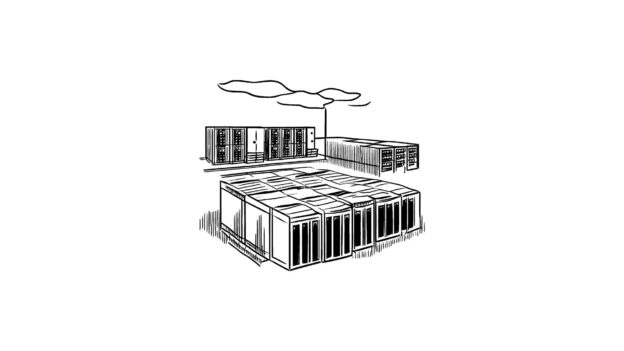The Growing Need for Sustainable Data Centers
Data centres, the powerhouses of our digital world, face a critical challenge: sustainability. While they provide the essential infrastructure for today’s digital ecosystem, their energy usage intensity can be staggering, often exceeding commercial office buildings of similar built-up areas by 20 to 50 times. With server racks evolving to hold even more powerful equipment (50 to 100 kW/rack compared to the previous 4 to 20 kW), the need for sustainable practices becomes even more pressing.
The Sustainability Imperative
Sustainability encompasses the design, construction, operation, and resource management (electricity, cooling, water, waste) provided for a data centre. Few facilities have embraced green practices from the outset, but many legacy data centres are now turning towards Environmental, Social, and Governance (ESG) frameworks to achieve long-term sustainability and reap its benefits.
Transforming Legacy Data Centres
For traditionally constructed data centres, achieving sustainability involves an ongoing improvement process. Sustainability initiatives, which encompass assessments and evaluations conducted by reputable organizations such as IGBC Green Data Center Rating, ECOVADIS (ESG Score), and the Building Research Establishment Environmental Assessment Method (BREEAM framework), play a pivotal role in facilitating the transition towards carbon, water, and waste neutrality.
Two-pronged approach for Facility Managers:
In-House or Expert Assessment:
Conduct regular assessments to identify areas for operational efficiency improvement across the entire data centre portfolios. This can be done by an internal team or by seeking external expertise.
Focused Interventions:
Based on the assessment findings, implement targeted interventions to address inefficiencies. This may involve upgrades to cooling systems, renewable energy sources, or water conservation measures.
India’s Booming Data Center Market: Balancing Growth with Sustainability
India’s digital landscape is undergoing a rapid transformation, fuelled by the proliferation of data centres. Currently ranking 13th globally, the Indian data centre market is experiencing significant growth, driven by factors like:
Digitalization Across Sectors: Education, healthcare, commerce, and communication are all experiencing a surge in online activity, demanding more data storage and processing power.
Emerging Technologies: The adoption of the Industrial Internet of Things (IIoT) and Generative AI necessitates data centres with a robust infrastructure.
Data Residency Requirements: The Digital Personal Data Protection Act (2023) encourages the construction of Edge and Hyperscale Data Centers to meet data residency requirements and ensure low latency.
“Challenges and Opportunities for Achieving Sustainable Growth”
While the data centre boom brings undeniable benefits, sustainability concerns require immediate attention. Here’s a closer look at the key challenges and opportunities:
Challenges:
Limited Sustainability Focus: Many legacy data centres haven’t prioritized sustainability principles, leading to higher operational costs and carbon footprints.
Green Energy Sourcing: Off-site green energy options are limited by a lack of awareness, unclear policy frameworks, and bureaucratic hurdles.
Energy Efficiency: Upgrading existing infrastructure to improve power utilization effectiveness (PUE) can be expensive and require a long payback period.
Water Management: The water crisis in some Indian cities highlights the need for Water Use Effectiveness (WUE) measures. Inadequate metering and stakeholder awareness exacerbate the issue.
E-Waste Management: A primary concern is the lack of proper monitoring, recording, and recycling systems for e-waste generated by data centres.
Opportunities:
Government Support: The Indian government’s revised data centre policy aims to facilitate land acquisition, green energy access, and supporting infrastructure. This will incentivize sustainable practices.
Favourable Green Energy Tariffs: Long-term Open Access (LTOA) tariffs offer cost-effective green energy options for data centres.
On-Site Green Energy: Technological advancements in solar-wind hybrid power systems make on-site renewable energy generation more attractive.
Water Efficiency Technologies: Implementing water-efficient building cooling systems, exploring recycled water reuse, and installing proper metering can significantly reduce data centre water usage.
Effective E-Waste Management: Policy development and enforcement focusing on e-waste reduction, reuse, and recycling is crucial. Additionally, establishing a network of trained and authorized e-waste recyclers is essential.
Conclusion
The Indian data centre market presents a golden opportunity for economic growth. However, ensuring long-term sustainability requires a collaborative effort from stakeholders. By addressing the existing challenges, embracing technological advancements, and implementing environmentally conscious practices, India can foster a thriving data centre ecosystem that is both economically viable and ecologically responsible.

